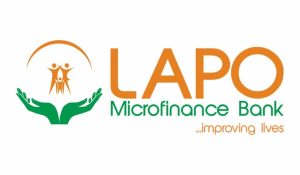
Why 140 JAMB score is equal to mediocrity
Nigeria is playing a dangerous game with its higher education system. This was starkly highlighted following the 2024 policy meeting on admissions, where the minimum benchmark scores for entry into tertiary institutions were drastically lowered once again.
Chaired by the Minister of Education, Tahir Mamman, and attended by heads of education agencies, vice-chancellors, rectors, and provosts, the meeting set 140 marks as the minimum score for university admissions and 100 marks for polytechnics and colleges of education—a decision widely criticized as a severe compromise on merit.
While it was clarified that individual institutions could set their own minimum scores, the consensus reached at the meeting represents a troubling acceptance of mediocrity. For instance, while Pan-Atlantic University maintained a benchmark of 220 marks, the University of Lagos and Obafemi Awolowo University opted for a minimum of 200 marks, still perceived as insufficient for institutions striving for academic excellence. Even more concerning is that some universities suggested scores below 140, further lowering standards.
Candidates are evaluated based on scores from four subjects, with 140 marks out of 400 considered the minimum for admission. This standard is alarmingly low and risks exacerbating Nigeria’s already dismal standing in global university rankings.
JAMB Registrar, Ishaq Oloyede, disclosed that out of over 1.9 million candidates who sat for the examination nationwide, only 1,842,464 had their results released. Of these, 8,401 scored 300 and above, 77,070 scored between 250 and 299, and 439,974 scored between 200 and 249, leaving a staggering 1,402,490 candidates scoring below 200.
With 76% of candidates scoring below 200, signaling less than 50% overall, the implication is clear: a significant majority of candidates are inadequately prepared for university-level education. In a competitive global landscape, this poses a serious setback for Nigeria’s future prospects. Nigerian universities already struggle to compete internationally, and admitting underprepared students will only further degrade their academic standards.
CSR REPORTERS notes that over the years, there has been a troubling trend of lowering admission cutoffs—once set as high as 240, then gradually reduced to 200, 180, and now 140. This trend has enthroned mediocrity within the education system, undermining the core purpose of universities as centers of academic excellence and innovation.
It is crucial for Nigeria to reverse this trend and uphold academic standards. Allowing institutions autonomy in setting their admission criteria, akin to practices in the United Kingdom and other nations, could restore integrity and ensure that only deserving candidates gain entry into universities. This shift requires a concerted effort to prioritize educational quality over short-term expediency, safeguarding the future of higher education in Nigeria from further decline.
In essence, the current approach risks compromising the integrity of Nigeria’s tertiary education system and perpetuating a cycle of underperformance.
Urgent reforms are needed to restore academic rigour and ensure that universities remain bastions of knowledge and excellence, not mere vocational centers or vehicles for political convenience.









